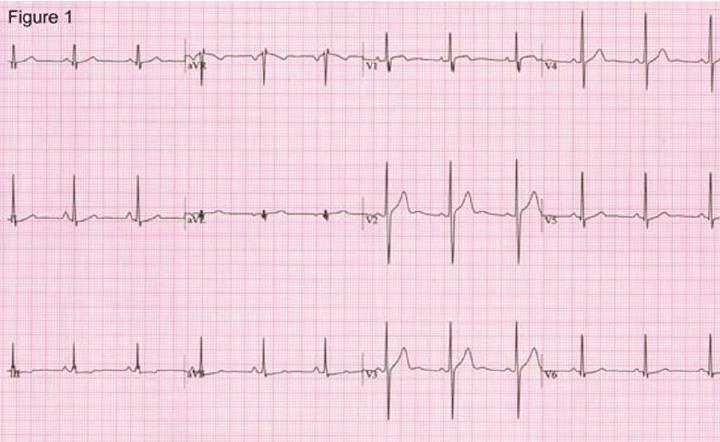Question
An 84 year old female arrives to the ER today with her son with a complaint of new onset of confusion. What are your differential
An 84 year old female arrives to the ER today with her son with a complaint of new onset of confusion.
What are your differential diagnoses for a patient with new altered mental status? Go through each body system and list possible ideologies that can cause confusion. You must have at least 2-3 differential diagnoses per body system.
- Neurological:
- Cardiovascular:
- Pulmonary:
- Gastrointestinal:
- Genitourinary:
- Musculoskeletal:
- Endocrine:
- Psychiatric:
- Metabolic:
- Exogenous:
With the above list of possible causes above, the next step will be to gather data. This data, when applied to the case, will rule out some of the possible causes and make other choices more likely.
You walk into the ER room and find the patient to be well nourished, well developed, appropriately groomed female in no acute distress; fidgeting with her sheets. Her face is symmetrical but she does not make eye contact with you when you introduce yourself.
Her son, Joe, is at the bedside. He states he brought his mother to the ER today because she was acting stranger than normal today. She has been forgetful the past few months. Joe moved in with his mother a few months ago to help her out and keep a closer eye on her. Today, though, she tried to make a phone call using the television remote. When Joe told her that was not a phone, she became very upset at him. Joe said that until today, she seemed fine. Joe denies any recent illness, falls, or new complaints but has noticed a decrease in appetite this morning and last night within his mother. Otherwise Joe denies any new complaints with his mother. Joe states she takes an orange pill for blood pressure, and a blue pill for her nerves.
PMH: Pre-diabetes, hypertension, anxiety, palpitations, osteoarthritis
PSH: Right knee replacement- 7 years ago
FH: Father had diabetes; mother had hypertension
SH: Denies smoking or illicit drugs; occasionally drinks wine with dinner. Retired school teacher. Lives in a house with her son.
Allergies: NKDA
What are the 3 pertinent positives from the information given so far?
1.
2.
3.
What are the 3 pertinent negatives from the information given so far?
1.
2.
3.
With the information provided, write the 1st paragraph of your HPI.
Mediations:
Zoloft 50 mg PO daily
Hydrochlorothiazide 25 mg PO daily
ROS:
The patient is a poor historian and is assisted with her son.
Constitutional: Denies fever, decreased appetite this morning and last night. No recent falls or trauma
HEENT: Denies headache or blurred vision. Denies any problems with swallowing. Denies recent upper respiratory infections.
CV: Denies chest pain, leg swelling, or difficulty breathing
Pulmonary: Denies SOB or cough
GI: Denies nausea/ vomiting. Had a BM this morning. Denies blood or melena in stool
GU: Denies hematuria. Endorses occasional "leaking" for which she wears a pad.
MSK: Occasional knee pain.
Neuro: Denies headache, falls, seizure, numbness, tingling, changes in speech, or extremity weakness
Endocrine: Denies polyuria, polydipsia, polyphagia. States she is always cold.
Physical Exam:
Vital signs: 98.5 degrees axillary, pulse 82, BP 156/80 mmHg, respiratory rate 18, oxygen saturation 97% on room air; blood glucose is 110 mg/dL
Constitutional: Well appearing, appears stated age, anxious/ fidgety, poor eye contact, appears tired
HEENT: PERRL, buccal mucosa moist, wearing dentures
CV: RRR, no murmurs, rubs, or gallops. Brisk capillary refill
Pulmonary: Regular without use of accessory muscles; clear to auscultation.
GI: + 4 BS in all 4 quadrants; soft; slight left lower quadrant tenderness with palpation; non-distended
Neuro: No focal neurologic deficits, face is symmetrical, speech is clear; 5/5 upper and lower extremity strength bilaterally. Oriented to person only. Nods yes or no to questions. Cranial nerves 2-12 intact.
Skin: Intact. No rashes, lesions, or sores noted. Normal skin turgor
Endocrine: Thyroid palpable without nodules. Normal hair distribution.
Based on the ROS and PE, what are 3 pertinent positives?
1.
2.
3.
Based on the ROS and PE, what are 3 pertinent negatives?
1.
2.
3.
Based on your initial differential diagnoses for AMS, how does the above information affect your list of possible causes?
- Neurological:
- Cardiovascular:
- Pulmonary:
- Gastrointestinal:
- Genitourinary:
- Musculoskeletal:
- Endocrine:
- Psychiatric:
- Metabolic:
- Exogenous:
Lab information:
CBC:
WBC: 15
Hgb: 12
HCT: 32
Platelets 300
BMP:
Na+: 138
K+ 4.0
Cl- 100
CO2: 22
BUN: 22
Creatinine: 1.0
Glucose: 110
LFT:
ALT: 50
AST: 15
Albumin 2.0
Urinalysis:
Color: yellow
Clarity: Hazy
Specific gravity: 1.008
Ph: 7.0
Leuko esterase: moderate
Nitrates: Positive
Protein: 3+
Glucose: 1+
Ketones: negative
Culture pending
Troponin negative
Diagnostic information:
EKG:

What did you discover to be abnormal with her labs?
Based on the lab and diagnostic data, what is your diagnosis, assessment, and treatment plan for this patient with AMS?
Diagnosis:
Assessment:
Plan:
Does this patient need to be admitted to the hospital? Why or why not?
Figure 1 VI V6
Step by Step Solution
There are 3 Steps involved in it
Step: 1

Get Instant Access to Expert-Tailored Solutions
See step-by-step solutions with expert insights and AI powered tools for academic success
Step: 2

Step: 3

Ace Your Homework with AI
Get the answers you need in no time with our AI-driven, step-by-step assistance
Get Started


